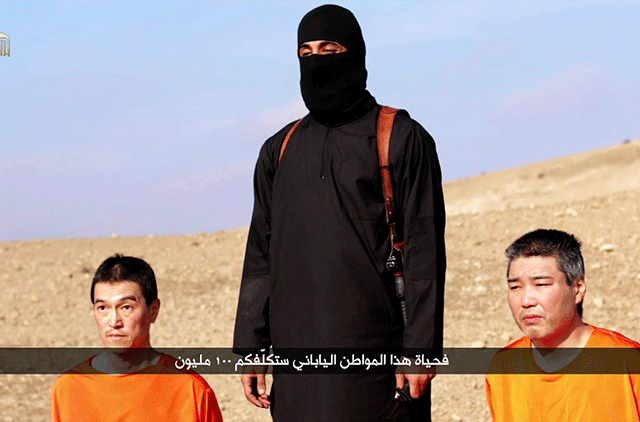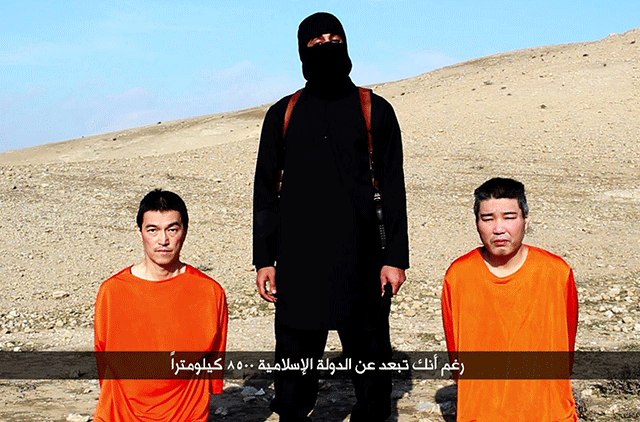
TOKYO: The release of an online video Tuesday purporting to show a Daesh figure demanding $200 million in ransom for two Japanese hostages ambushed Prime Minister Shinzo Abe as he was wrapping up a six-day tour of the Middle East.
The news brought into sharp, urgent focus in Tokyo terrorism issues that are usually only a distant concern for most Japanese.
Abe said the threat by the Islamic State group to kill two Japanese hostages in 72 hours is "unforgivable."
Prime Minister Shinzo Abe made the comment Tuesday in Jerusalem. Abe said: "It is unforgivable and I feel strong resentment."
Abe demanded the Daesh group immediately release hostages Kenji Goto Jogo and Haruna Yukawa.
An online video released Tuesday purported to show the Islamic State group threatening to kill the two men unless they receive a $200 million ransom in the next 72 hours.
Japan's ME involvement
Japan relies on the Middle East for most of the crude oil it needs to run the world's third-largest economy. Japan has been stepping up its efforts to build wider economic ties and has increased exports as Abe has crisscrossed the region peddling Japanese technology and investment. Abe's Middle East mission included more than 100 government officials and presidents of Japanese companies.
Japan's government spokesman, Yasuhide Suga, said Tuesday that Tokyo remains committed to working for stability in the region and providing non-military, humanitarian aid.
Abe and Israeli Prime Minister Benjamin Netanyahu agreed Sunday during Abe's visit to Jerusalem to cooperate on counterterrorism.
Switching gears
Abe will participate in planned official talks Tuesday with Palestinian President Mahmoud Abbas but is cancelling other events on his schedule to focus on the hostage crisis, Suga said.
He was due to return to Japan on Wednesday.













